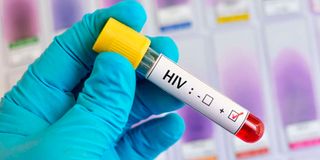Why rate of HIV infection is on the rise

There is an increase in the rate of HIV infection in Kenya.
There is an increase in the rate of HIV infection in the country mostly because the Ministry of Health and its partners have concentrated on testing and treatment at the expense of taking prevention measures.
A majority of the population lacks knowledge about HIV issues, unlike in the 1990s when major components of prevention were given as a package to the public. The lack of HIV literature is also a contributing factor to the upsurge.
Infection used to be low due to behaviour change communication, advocacy against stigma, health talks within the communities and facilities, nutritional support to those infected and affected and transport to the vulnerable to collect drugs.
Currently, the newly infected meet unfriendly healthcare providers who have no management skills because training and seminars were stopped to cut on costs. But the cutting of costs has proven to be costly.
Those working at the lowest level like peer educators and mentor mothers who are also HIV positive are given a raw deal by the Non-Governmental Organizations and the entire system of the health sector.
They are viewed as lowly and whenever there is a benefit like gratuity, they are left out making them lose their morale at work.
Lack of test kits and condoms has also contributed greatly to the upsurge of the virus. These commodities should be made available at the facilities countrywide.
To make matters worse, reagents used in the gauging of one's viral load can lack in hospital laboratories for months.
There are also several NGOs and Community-Based Organisations which are office oriented and are not assisting the infected at all despite getting millions of shillings towards this course.
The Constituency Aids Committees which played a major role in coordinating HIV activities at the grassroots level have become dormant and there is a need to revive them through Members of Parliament.
During this time of hunger, the government and its partners should consider providing nutritional support to the most vulnerable in society, especially widows, orphans and street families. We need to address these factors if we want to make a positive impact in curbing the spread of HIV in the country. There was nothing to celebrate on World Aids Day in Kenya.
Damson Opiyo Onger, Kisumu
* * *
It has been over 40 years since HIV was declared a national disaster. This year, HIV infections in the country have increased for the first time in a decade, especially among children, adolescents and young people.
Challenges remain such as the unavailability of HIV testing kits in public hospitals, shortages of ARVs and condoms as a result of corruption at the Kenya Medical Supplies Authority and lack of proper HIV funding.
Cynthia Ochieng', Nairobi



